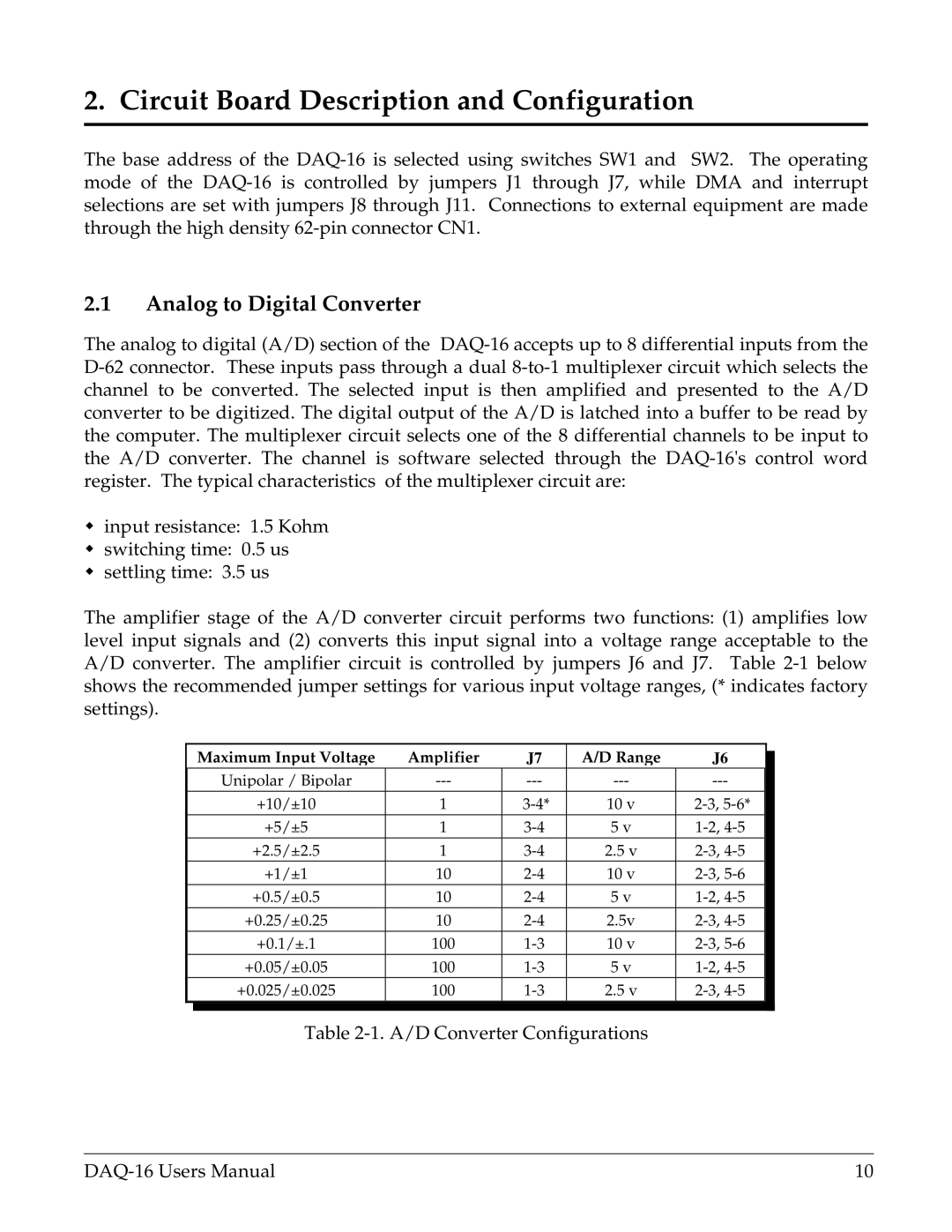
2. Circuit Board Description and Configuration
The base address of the DAQ-16 is selected using switches SW1 and SW2. The operating mode of the DAQ-16 is controlled by jumpers J1 through J7, while DMA and interrupt selections are set with jumpers J8 through J11. Connections to external equipment are made through the high density 62-pin connector CN1.
2.1Analog to Digital Converter
The analog to digital (A/D) section of the DAQ-16 accepts up to 8 differential inputs from the D-62 connector. These inputs pass through a dual 8-to-1 multiplexer circuit which selects the channel to be converted. The selected input is then amplified and presented to the A/D converter to be digitized. The digital output of the A/D is latched into a buffer to be read by the computer. The multiplexer circuit selects one of the 8 differential channels to be input to the A/D converter. The channel is software selected through the DAQ-16's control word register. The typical characteristics of the multiplexer circuit are:
input resistance: 1.5 Kohm
äswitching time: 0.5 us
settling time: 3.5 us
The amplifier stage of the A/D converter circuit performs two functions: (1) amplifies low level input signals and (2) converts this input signal into a voltage range acceptable to the A/D converter. The amplifier circuit is controlled by jumpers J6 and J7. Table 2-1 below shows the recommended jumper settings for various input voltage ranges, (* indicates factory settings).
| Maximum Input Voltage | Amplifier | J7 | A/D Range | J6 | |
| |
| Unipolar / Bipolar | --- | --- | --- | --- | |
| +10/±10 | 1 | 3-4* | 10 v | 2-3, 5-6* | |
| +5/±5 | 1 | 3-4 | 5 v | 1-2, 4-5 | |
| +2.5/±2.5 | 1 | 3-4 | 2.5 v | 2-3, 4-5 | |
| +1/±1 | 10 | 2-4 | 10 v | 2-3, 5-6 | |
| +0.5/±0.5 | 10 | 2-4 | 5 v | 1-2, 4-5 | |
| +0.25/±0.25 | 10 | 2-4 | 2.5v | 2-3, 4-5 | |
| +0.1/±.1 | 100 | 1-3 | 10 v | 2-3, 5-6 | |
| +0.05/±0.05 | 100 | 1-3 | 5 v | 1-2, 4-5 | |
| +0.025/±0.025 | 100 | 1-3 | 2.5 v | 2-3, 4-5 | |
| | | | | | |
Table 2-1. A/D Converter Configurations

